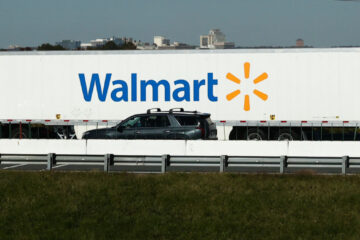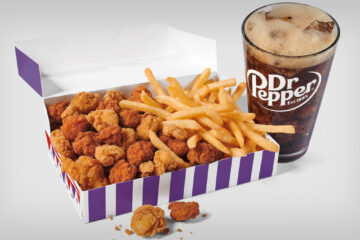If you can’t wait to close the door on 2024, you’ve got a lot of company.
In fact, we can think of five companies right off the bat that are probably itching to see their calendars flip to 2025 as soon as possible.
Related: Check out November’s biggest stock market winners (and losers!)
These are the five worst-performing stocks on the Dow Jones Industrial Average, and the list includes some heavyweight names.
Johnson & Johnson: Litigation and deals (Down 8%)
So, starting with the 30-company index’s fifth-worst performer, we have medical-devices and healthcare giant Johnson & Johnson (JNJ) , which fell 7.73% in 2024.
In September, J&J’s Red River Talc unit filed for bankruptcy for a third time as the healthcare titan looked to advance a roughly $8 billion proposed settlement. The proposal would end tens of thousands of lawsuits alleging that the company’s baby powder and other talc products caused cancer.
🎁 Buy 1 Year and Get 1 Year FREE on TheStreet Pro. Act now before it’s gone ⏰
The company said in October that its third-quarter results were affected by the updated talc litigation settlement proposal and acquired in-process research and development expenses associated with the NM26 bispecific antibody.
In July, J&J completed its acquisition of Yellow Jersey, a de-merged subsidiary of Numab Therapeutics, to secure the global rights to NM26. The transaction was valued at $1.25 billion.
Earlier this month, Citi lowered its price target on Johnson & Johnson to $175 from $185 and affirmed a buy rating on the shares as part of a 2025 outlook for the U.S. medical-technology sector.
The stocks that outperformed in 2024 followed the traditional medtech path, and Citi said it expected the same in 2025: launching differentiated products that can be leveraged to the bottom line, with management teams providing consistent delivery.
Merck: Gardasil vaccine sales in China an issue (Down 9%)
Biopharma Merck & Co. (MRK) was next on the list, with its shares down 8.75% for the year.
BMO Capital recently downgraded Merck to market perform from outperform with a price target of $105, down from $136.
The firm cited Merck’s commercial overhangs, namely the Gardasil franchise in China, a reference to a group of vaccines developed by the company to prevent human papillomavirus infections.
In October, Merck said the franchise’s sales slid 11% in the third quarter from a year earlier to $2.3 billion.
Merck attributed the decline to lower demand in China, which offset double-digit growth across “almost every other region,” according to Chief Executive Robert Davis.
Related: UnitedHealthcare spotlight reveals pivotal AI failure
BMO Capital also pointed to a need for additional clarity on how the company plans to fill the gap caused by its cancer treatment Keytruda, which will see its patent expire in 2028, enabling other biosimilars to enter the market.
The firm also noted the impact of Inflation Reduction Act negotiations, which enabled Medicare to reduce drug prices.
Last year, Merck sued the Department of Health and Human Services over Medicare’s new powers to reduce drug prices under the IRA.
Given “mounting skepticism across pharma,” BMO sees Merck shares “potentially stuck in limbo” over the next 12 months with more attractive options available elsewhere.
Amgen: Pressure from expiring patents (Down 10%)
Amgen (AMGN) is the third-worst Dow performer. The biotech’s shares are off 9.51% for the year.
Bank of America analyst Tim Anderson recently reinstated its coverage of Amgen with an underperform rating and a $256 price target.
A number of patents expiring over the next 10 years will “put pressure on the base,” the firm contended.
The obesity premium is coming out of the stock, but B of A says, “there might be more room to go.”
More Health Care:
Dave Ramsey warns Americans on a major Medicare mistake to avoidBlue Cross Blue Shield halts strict coverage policy after outrageBiden administration adds weight-loss drugs to Medicare
Amgen said last month that in a Phase 2 trial, its MariTide weight-loss drug helped people with obesity lose as much as 20% of their body weight over a year.
However, the rate of trial participants discontinuing MariTide appeared higher than that of rival medications.
In addition, Goldman Sachs analysts removed Amgen from the firm’s U.S. Conviction List as part of its monthly update.
Nike: China consumers pull back (Down 30%)
Nike (NKE) was the Dow’s second-worst performer, with shares of the athletic apparel and equipment company sliding 30.3%.
The company has been contending with a pullback in consumer spending in China, a key growth market, intense competition from European rival Adidas (ADDYY) and missteps tied to a focus on its direct-to-consumer business over traditional retailers and wholesalers.
In September, Nike said CEO John Donahoe, who took the top job in January 2020, would retire as of Oct. 13. Donahue’s successor is Elliot Hill, who had started at Nike at age 18 and worked for the company for 32 years until retiring in 2020.
More Wall Street Analysts:
Veteran analyst who forecast Rocket Lab’s stock rally updates price targetAnalysts revamp Ciena stock price target after AI outlookTop analyst revisits Micron stock price target ahead of Q1 earnings
Stifel lowered its price target on Nike to $75 from $79 while affirming a hold rating on the shares.
Hill shared his vision for Nike to return to a sport-obsessed, athlete-driven, and premium brand and organization, the firm said. But the quarter’s upside was “overshadowed” by significant pressure on revenue expected in the fiscal second half.
Crucial marketplace cleanup measures will continue into fiscal 2026, and the turnaround will cut “across many quarters,” Stifel said.
Boeing: South Korea crash adds to difficult year (Down 32%)
And finally, the Dow’s worst performer was Boeing (BA) , as the aerospace giant’s stock tumbled 32.1% for the year.
The latest blow to the company came on Dec. 29 when a Boeing 737-800 crashed in South Korea, killing 179 people.
It was the deadliest aviation disaster to hit South Korea since 1997, when a Korean Airlines Boeing 747 crashed in the Guam jungle, leaving 228 people dead.
Related: Boeing thought it had a plea deal until a judge said otherwise
Boeing’s year got off to a rough start in January when a door plug blew off a Boeing 737 Max during an Alaska Airlines flight.
In July, Boeing agreed to plead guilty to conspiracy to commit fraud for deceiving the Federal Aviation Administration regulators who approved the 737 Max.
The 737 Max, Boeing’s best-selling aircraft, was involved in two fatal crashes in 2018 and 2019.
In addition, 3,000 Boeing machinists went on a seven-week strike in September, crippling the production of the 737 Max jetliner, the 777 airliner and 767 cargo plane.
JP Morgan said in a research note about the South Korea crash that the 737NG family, which includes the 737-800, was first delivered in 1997, has a strong safety record, and has been one of the most prevalent aircraft in the global fleet.
Wolfe Research said the tragic crash of Jeju Air flight 2216 should have no read-through to Boeing’s stock and the company’s “current struggles to ramp up its production” of the 737 Max.
The accident’s root cause could be among several factors, but workmanship and design “aren’t likely in the mix,” the firm said.
However, Wolfe, which has an outperform rating on Boeing, added that commercial aerospace’s infrequent, but sometimes catastrophic, accidents are a reminder of the unique headline risk to aircraft makers.
Related: Veteran fund manager delivers alarming S&P 500 forecast


